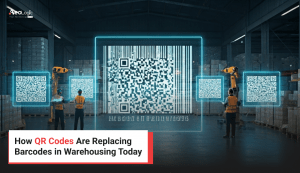Introduction
Digital solutions for shopping experience is quickly getting the norm in numerous industries, and retail is no exception. With customers awaiting more individualized experiences and higher convenience, digital transformation in retail has come essential for companies to stay competitive. By embracing new technologies similar as Artificial Intelligence and Data Analytics, retailers can work data- driven perceptivity to boost client engagement while streamlining operations. Still, there are some challenges that come with the relinquishment of retail software results from perpetration issues to security enterprises.
Also read: Top Personalized Technology Solutions for the Retail E-commerce Sector
In this article, we’ll look at what exactly digital solutions for shopping experience in retail sector means. Its benefits, perpetration strategies, and use cases, as well as some implicit roadblocks along the way.
What Does Digital Solutions for Shopping Experience in the Retail Sector Means? Digital transformation in retail is the process of using digital technologies to produce new or modify being business processes, client experience, and organizational structures. The thing of digital transformation in the retail assiduity is to give customers with an enhanced shopping experience while also adding profitability for retailers. To achieve this thing, businesses must borrow a range of digital tools similar e-commerce platforms, mobile operations, AI and Machine learning, analytics software, cloud computing services, and more.
What are the Benefits of Digital Transformation in Retail?
Digital transformation in the retail sector can give a number of benefits to businesses. These benefits include bettered client experience, increased functional effectiveness, better decision- making capabilities, and cost optimization. Let’s have a closer look. Improved Client Experience
Digital solutions for shopping experience in the retail sector helps produce a more individualized shopping experience for customers by using Data Analytics and Artificial Intelligence. This allows retailers to customize their preferences grounded on client preferences and experiences.
Also, digital tools similar as mobile apps enable customers to fluently get product information and make purchases quickly and accessibly. By using AI-powered chatbots or virtual assistants on their websites or apps, retailers can give individualized recommendations based on customers’ past purchases and preferences. This helps make trust between the retailer and its guests by furnishing them with a better shopping experience that matches their requirements.
Increased Operational Efficiency
By automating processes with the help of AI- powered technologies similar as robotic process automation (RPA), retailers can streamline operations while minimizing manual labor costs. Automation also enables quick response times when dealing with client inquiries or complaints. Digital transformation in the retail sector can help businesses by streamlining operations within stores themselves. For example, radio- frequency identification (RFID) markers attached to products allow store staff to track force situations in real time without having to manually count particulars every day. Also, automated checkout systems reduce delay times for shoppers perfecting overall satisfaction situations among guests.
Better Decision-Making Capabilities
Data Analytics provides perceptivity into consumer experience that can be used to inform marketing strategies or optimize pricing models for maximum profitability. The AI- driven data analysis further enhances decision- making capabilities by furnishing real- time recommendations grounded on once performance data.
Cost Optimization
Enforcing digital results can reduce overhead costs associated with manual tasks similar as force operation or order processing while perfecting delicacy at the same time. Also, cloud computing services offer scalability without taking additional hardware investments, which helps lower IT charges significantly over time.
These are just some of the numerous benefits of digital transformation. This process brings numerous advantages to businesses. Still, there are also challenges that need to be addressed when enforcing digital solutions strategies. Let’s take a look at them.
Challenges of Digital Transformation in Retail
Digital transformation can be challenging due to the complexity of the technology involved and the need for associations to adapt their processes and systems. Also, there are security issues that must be addressed when enforcing digital transformation in your business.
Lack of Industry Experts
One challenge associated with digital transformation in the retail sector is getting good labor force. It requires technical skill sets similar as software engineering, Data Analytics, AI, cloud computing, mobile development, and cybersecurity expertise. Similar talents may not always be available within an association which calls for external sources of expertise. That’s where you may need to partner with a dependable software development company that can support your digital transformation journey.
Cost of Transformation
Another issue is budgeting. Similar systems bear significant investments upfront before any gains. Companies must also consider whether they will outsource certain aspects of their design or if they will develop them internally using their own coffers. Both options have pros and cons depending on the specific requirements of each business case script.
Security Concerns
Eventually, security issues are another major concern since customer data must remain secure while still allowing companies access for marketing purposes or other functional requirements. Organizations must invest heavily in encryption protocols, authentication mechanisms, and regular system checkups to insure compliance with industry norms like PCI DSS( Payment Card Industry Data Security Standard). Also, they should consider enforcing additional protection. Such as two- factor authentication and intrusion discovery systems.
Also read: 10 Technologies Leading Digital Transformation In Retail
Final Thoughts
However, today, the client experience is being shaped more and more by technology and digital services. As retailers are applying digital transformation plans designed to produce a better experience for consumers. The digital solutions are much further than opening e-commerce platform. It’s about revolutionizing customers’ physical or brick and mortar buying experience. By creating a flawless, omnichannel experience coinciding the digital and in- store retail experiences.
Connect with us to know more!










